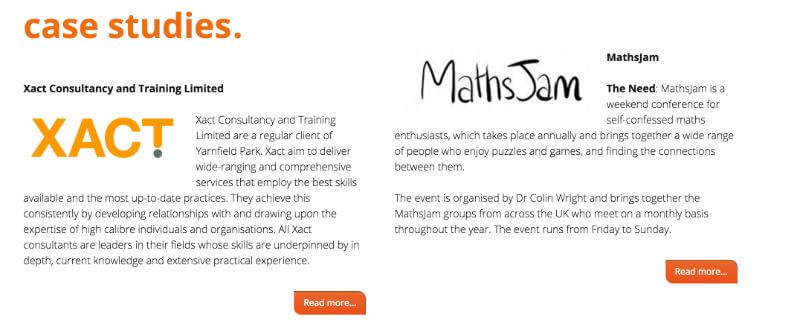
5 steps to help professionals evaluate if a training course is worth their time and money
Residential conference venues and training centres offer excellent facilities and broaden the scope for employers and employees to further educate themselves in a field they may already be familiar with. They can also provide brand new opportunities for growth and development.
With so many options available to professionals, it can sometimes be a daunting task determining whether a training course will add value on a personal or professional level. Here are a few points to consider before signing up for a course…
1. Work Schedule
Taking time out of your business or organisation in order to develop your career can prove to be difficult. You need to consider whether you have any conflicting arrangements or commitments for the duration of the training course. You will also need to determine whether the time away from the business may have a negative impact on your working life and task list.

2. Future Goals
It is essential to map out your future goals, whether that be for your personal or professional development. Will you or your business benefit from the training course? Does it fit in with your aspirations? It can be helpful at this stage to research your career or industry to see what other professionals are doing and whether your knowledge and expertise can match up to, or beat, the competition.

3. Price Tags
Training courses can often be costly, not only in terms of the price of the course itself but also your time away from the business. At this stage in your decision-making process it is helpful to evaluate the end value. Will the learning outcome make enough of an impact to make the investment worthwhile?

4. Case Studies
You have received the sales literature from the training provider and they are making you a million promises for growth and development. On paper this course fits in with your ideals. It very well could be but don’t take their word for it. Research the facts, get case studies and read testimonials from others who have undertaken the same course. Using their experiences can help you determine if this is the best option for you.

5. Alternative Options
Training courses are often a great way of keeping up to date and relevant in your career and to up-skill in areas where your knowledge is limited. Learning the changes and developments in your industry can be a challenge in itself. Consider all resources available to aid you in the goals you have set out for yourself or your business. Think about attending trade shows, conferences or seminars to help determine which option marries up to your ideals.

Found this blogpost beneficial? Our website is full of helpful tips and tricks to make your working life easier – take a look at our useful business apps to help improve your efficiency.
Go back to other articles

